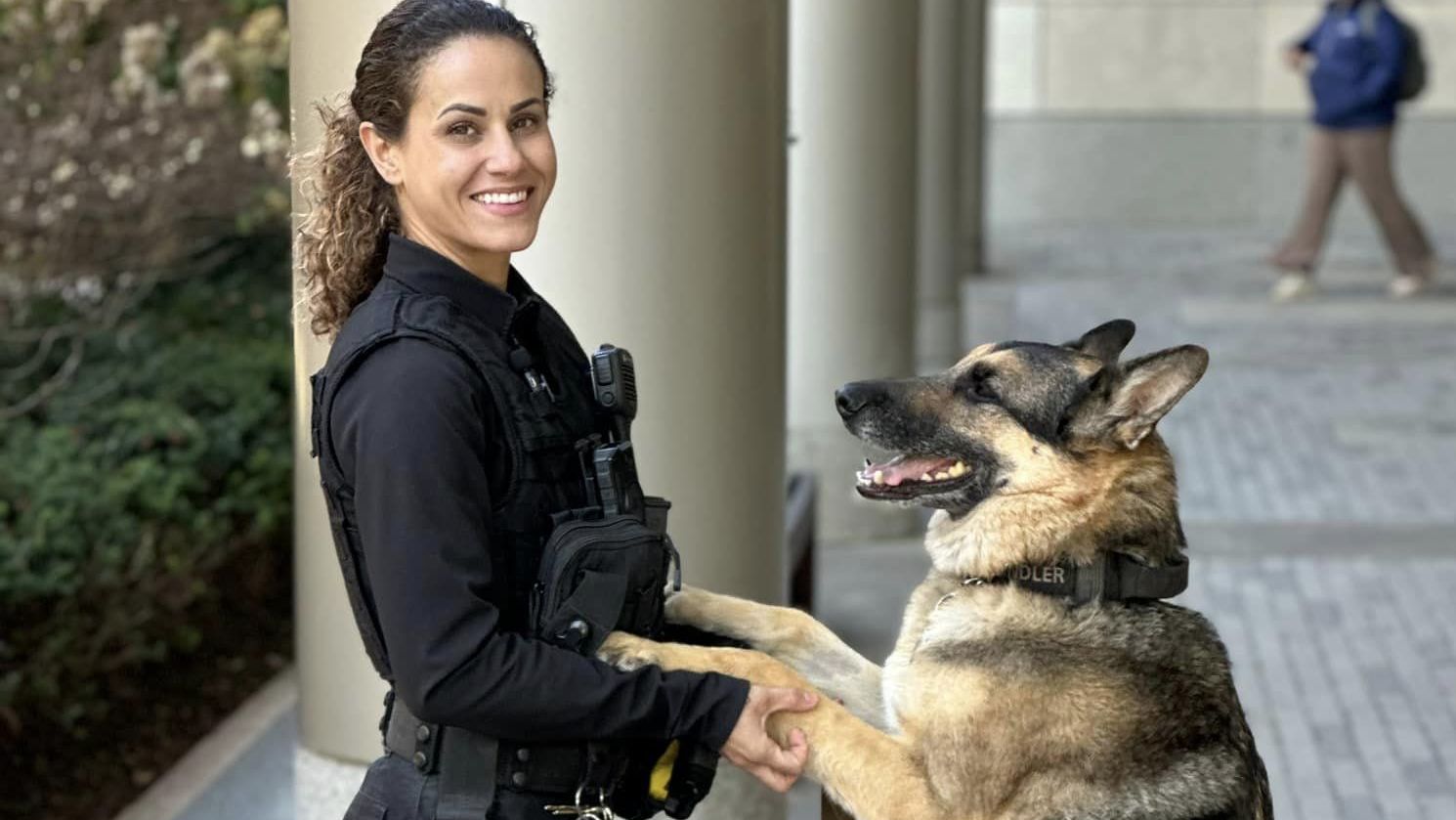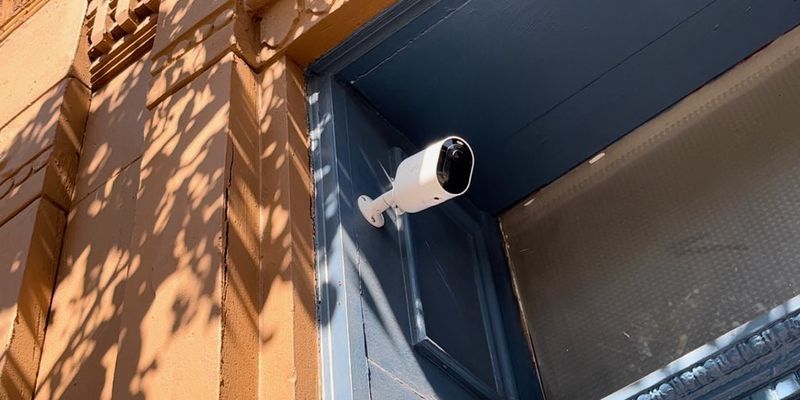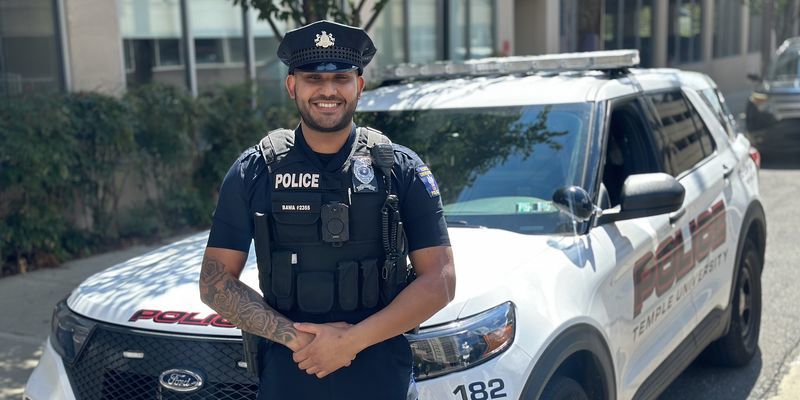Temple University Department of Public Safety makes new 12-hour shifts permanent following trial period, increasing the number of officers on patrol
“There is no overstating the impact that this has had when it comes to officer wellness and staffing,” said Vice President for Public Safety Jennifer Griffin.

As Temple Police Officer Natalie Sherman patrols Main Campus with K9 Officer Chandler, she said the new 12-hour shift schedule—which was put into place permanently this semester—was a needed change that benefits both police officers and the Temple community who they protect and serve.
“The new 12-hour shift schedule allows K9 Chandler and I more time to do foot patrols and interact with students, staff and business owners,” she said. “We’ve gotten to know many of the food truck owners by name and vice versa, like The Crepe Truck. It’s a favorite of Chandler’s.”
The Department of Public Safety (DPS) introduced the 12-hour shift program—instead of traditional eight-hour shifts—as a pilot program over the summer. Since then, callouts have dropped and the number of officers on patrol has increased.
“With the 12-hour shift model in place, some shifts have an additional three to six police officers patrolling the patrol zone,” said Vice President for Public Safety Jennifer Griffin.
Because of the success, DPS leadership recently met with the Temple University Police Association and adopted the new shift model permanently.
“Officers are working the same total hours per month, but now work just 15 days per month instead of working 21 days a month with the eight-hour shifts. In total, officers will get an additional 72 days off each year,” Griffin said.
Sherman said having more days off was a major benefit. She also said police officers get more weekends off than the previous eight-hour model.
“Working a 12-hour shift schedule means more time at home. That helps officers mentally, because it allows us to reset ourselves,” Sherman said. “I think it was a great change and what the police department needed.”
Griffin added that every other weekend is a three-daylong weekend for Temple police officers.
“Police work is a high-stress profession, and the new 12-hour shifts give police officers more time to rest, recharge and recover,” said Griffin.
On a recent day, the university’s patrol zone around Main Campus was staffed with 15 police officers, which included Temple police officers, supervisors and supplemental patrols—Philadelphia police officers who are paid by Temple to work on campus or within the university’s patrol zone.
“The patrol zone is about a single square mile. Having over a dozen police officers patrolling in a square mile within the city is a higher number than anywhere else in North Philadelphia, and possibly the entire city. This allows DPS to deter crime and quickly respond to calls for service,” said Griffin.
Virginia Apostolopoulos, owner of The Crepe Truck, has noticed a visible police presence on and around campus.
“I’m always seeing the police officers, they’re always going up and down the street, doing their rounds, always,” said Apostolopoulos.
Students agree, like Nate Weinberg, a junior public relations major and the director of campus safety at Temple Student Government.
“They’re more visible, I see police driving around more and doing more foot patrols,” said Weinberg.


